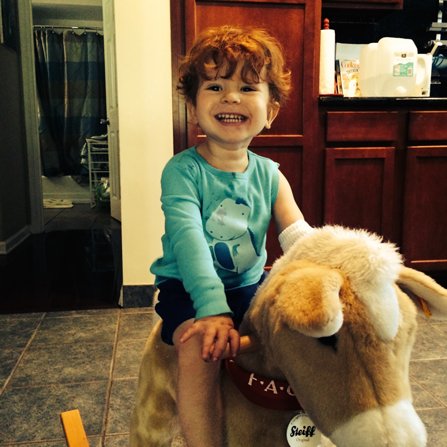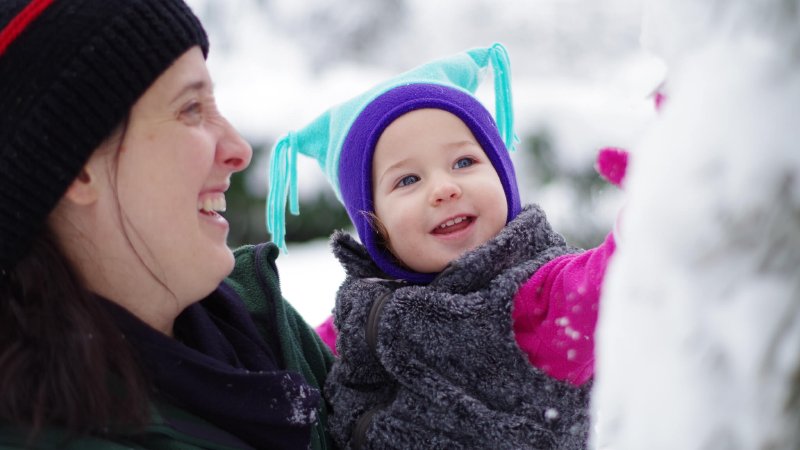
-
HOME
-
WHAT IS STANDOur Mission Our Values Our Help Contact
-
WHAT WE FIGHT FORReligious Freedom Religious Literacy Equality & Human Rights Inclusion & Respect Free Speech Responsible Journalism Corporate Accountability
-
RESOURCESExpert Studies Landmark Decisions White Papers FAQs David Miscavige Religious Freedom Resource Center Freedom of Religion & Human Rights Topic Index Priest-Penitent Privilege Islamophobia
-
HATE MONITORBiased Media Propagandists Hatemongers False Experts Hate Monitor Blog
-
NEWSROOMNews Media Watch Videos Blog
-
TAKE ACTIONCombat Hate & Discrimination Champion Freedom of Religion Demand Accountability
A Case of Medical Discrimination
I took a survey yesterday about my recent experience in the hospital. I was there for a C-section for my third baby.
One of the questions gave me startled pause.
I was asked if I experienced any kind of discrimination for my race or culture.
As a white-bread American, definitely not. I suffer from an excess of privilege in that regard, which is what makes the actual discrimination suddenly stand out so starkly.

It’s not cultural, or racial, but definitely, absolutely, positively religious.
And it’s not even really discrimination, but more of a negation. As though my religion doesn’t warrant consideration.
In medicine, I’ve been treated with downright disgust and even had a doctor straight up refuse to stitch up my three-year-old son in the ER when I asked that he not be given Ketamine—a horse tranquilizer—as a sedative. A simple request and well within my rights as a parent, let alone this being part of my religious accommodation.
I’ll explain this further, but allow me a moment to establish some of our beliefs.
In a medical setting, though, this simple request is often met with derision. I’ve been threatened with expulsion from a hospital for daring to ask that of them. I’ve had a doctor refuse to treat my child.
We believe that there are two aspects of the mind. There’s an analytical part that does our thinking and analysis. It’s our logic. Then there’s this reactive part. This is the source of fight-or-flight stimulus response. It’s great for animals. They survive that way. Terrible for humans. We believe that everything in your environment is recorded during moments of pain and unconsciousness and that things said in such moments can later act as hypnotic commands.
It is only logical that during moments of pain we would therefore want to be quiet, keeping chitchat and banter to a minimum. This is why the whole silent birth. It’s not weird at all. People do follow hypnotic commands. They’re neat little parlor tricks that have been around for more than a century. They can also be inadvertently given during moments of pain and unconsciousness. Pretty simple stuff.
And this is what I believe, and I believe it fervently because I see it play out every time my son spills water on himself.

When he was two, he got a third-degree burn from scalding water spilled on his arm. In my sheer mom-panic, I snarled at my husband “Get his clothes off!” or something close to that.
It stands out because it was one of the few things I said during that time. We were mostly quiet, offering comfort and doing what immediate first aid we could. Obviously there were phone conversations with his pediatrician and later conversations with the staff at the ER. There are moments where talking is necessary —we’re not weird silent robots. So that is what happened to him and what I said.
Years later, I see this “command” take hold of my son like this: he spills water on himself or gets wet in some way and he MUST get his clothes off. It doesn’t matter if it’s a drop of water or he’s completely drenched. If there’s water, he’s got to get naked. This will be problematic when he’s older if we don’t sort it out first.
It reminds me of what I believe every time it happens.
So because of this obvious cause and effect, my husband and I make the effort to keep the environment around sick and injured people quiet and calm. We don’t ask for complete silence because that’s a ridiculous request. We ask that there’s no banter, or Tinder-date discussions. We ask that there’s no radio playing and that talk is kept to the necessities.
In a medical setting, though, this simple request is often met with derision. I’ve been threatened with expulsion from a hospital for daring to ask that of them. I’ve had a doctor refuse to treat my child.
Later, the assistant physician came in to apologize, saying she understood we were Scientologists and knew how important it was for us to have a respectful environment while bringing life into this world.

During my last birth, after explaining our simple request to each of the nurses and doctors that would be in attendance, I gave birth in a room with the radio blasting and so many different conversations that my doctor couldn’t hear the physician assisting him with my C-section.
He had to yell above the cacophony for everyone to quiet down, turn off the radio, and bring peace and calm to my birth experience.
Later, the assistant physician came in to apologize, saying she understood we were Scientologists and knew how important it was for us to have a respectful environment while bringing life into this world.
Some religions get a chaplain, a chapel, last rites, blessings, a rabbi for circumcision.
But not us. I’m sad to say that I’ve gotten so used to being treated this way that I hardly think about anymore. I just try to get in and out, fly under the radar and hope that I don’t have to explain one more time that I DO NOT want to give my child a drug designed to cause amnesia, that I would like them to not talk about their problems and debts and relationship woes in front of him while he is in pain.
Because… what if we ARE right? And the simplicity of a reactive mind is one of the great ills plaguing society? Wouldn’t all the strange insanity in this world suddenly make a little more sense?
I sometimes imagine my son in his thirties, as a non-Scientologist. It’s raining in my imagination and he’s wet. Compelled by this early command, he strips off his clothes. It doesn’t matter that he’s on 5th Avenue in New York. He gets naked because he’s got to “get his clothes off!” The police come and he’s arrested for a sex crime and labeled for something he had no control over.
Luckily, I believe that what was done to him can also be undone by him. And that brings me peace knowing that that nightmare of a daydream doesn’t have to be his future.
But it might be someone’s. And I hope they read this first and know that help is possible.









